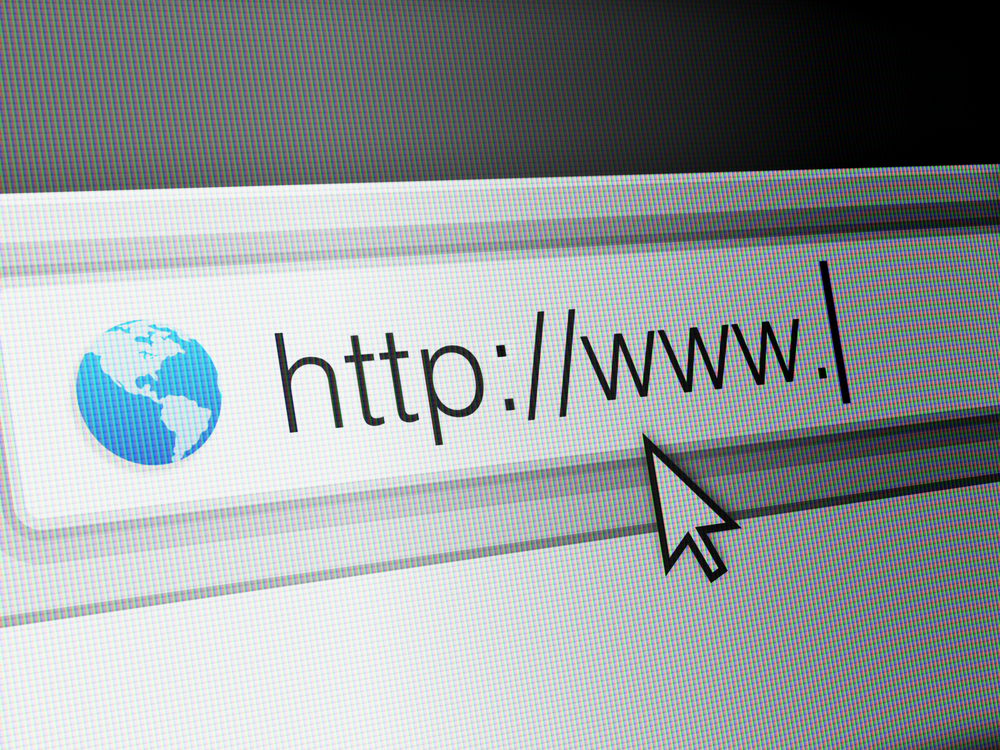Should you invest in domain privacy protection?
We discuss the reasons to invest in domain privacy protection—from avoiding spam calls and emails, to hiding your valuable information from business competitors


Sign up today and you will receive a free copy of our Future Focus 2025 report - the leading guidance on AI, cybersecurity and other IT challenges as per 700+ senior executives
You are now subscribed
Your newsletter sign-up was successful
When you purchase a domain name via any of the best web hosting services or best website builders on the market, you’ll likely be greeted by a myriad of add-on features that you can purchase alongside the domain name. One useful feature—domain privacy protection—often leaves many wondering whether they should invest in it.
Because this feature generally comes at a small fee, many are hesitant about whether to purchase it. The truth is, anyone’s personal data is susceptible to cyberattacks and data breaches. Therefore, while the add-on isn’t mandatory, the extra security it provides to protect your website, personal information, and identity is definitely useful.
In this article, we’ll look at a few of the reasons why you should invest in domain privacy protection: it's also worth taking a look at our feature that outlines why domain privacy is important, and what it means for your business.
1. Because anyone can access your personal information

You may already know that the Internet Corporation for Assigned Names and Numbers (ICANN) requires anyone who owns a website (whether it’s for an organisation, a business, or just for fun) to provide full contact information for the domain that they are looking to purchase.
But did you know that if you’ve ever registered a domain, all of the contact details attached to your web hosting domain are publicly available to anyone on the Internet? This is all thanks to the WHOIS, a database that keeps a full record of who owns a domain and how to get in contact with them.
On the database, anyone can enter your registered domain name into the search bar, and retrieve your personal information. In addition to your phone number, email address, and mailing address, WHOIS will have information about who the domain registrar is, which city they’re located in, when the registration expires, and when it was last updated.
While the database was created to hold individuals accountable for their domain, hackers and spammers can misuse your data for dishonest purposes. If you’ve been spending the last five minutes trying to think of ways to trick your domain registrar, such that you do not have to provide authentic information and data so that you will not be left susceptible, we’re about to disappoint you: you’re only allowed to register a domain with authentic information.
Sign up today and you will receive a free copy of our Future Focus 2025 report - the leading guidance on AI, cybersecurity and other IT challenges as per 700+ senior executives
That’s because all of the information that you provide will have to be verified before you can proceed with your registered domain. In fact, you may lose your domain name for violating WHOIS’s terms and conditions when you enter fake information. Besides, if you’re a business owner, the last thing you want to do is lose credibility by using a fake profile.
2. Because you can prevent data scraping

If you noticed that soon after registering your domain name you’ve been receiving a ton of marketing emails and phone calls, you may have been a victim of data scraping: the process of gathering information from publicly available sources, and saving it onto a spreadsheet or local file to be used for various purposes.
Many third-party vendors engage in data scraping to obtain personal data from public databases such as WHOIS, so that they can sell the information to businesses and organisations for a profit. With your personal information, organisations and pushy marketers can flood you with unwanted phone calls, spam email, and even snail mail. Investing in domain name privacy is, however, a practical way to prevent data scraping.
While data scraping may leave you susceptible to unscrupulous marketers, that’s not the worst that could happen. Having your information publicly available can also increase your risk of getting hacked, and having your identity stolen.
Furthermore, scammers who’ve obtained your information can send out emails under the guise of a legitimate company, to get you or your employees to open fake emails that can compromise your data. Such email phishing scams are common, and can affect even the most well-known organisations around the world. Essentially, domain privacy protection can help prevent your data from getting into the wrong hands.
3. Because you can avoid competitors who’re doing market research
Let’s face it: we all try to stalk our competition while we’re doing our market research. If you’re a business owner, you’ll know that there are competitors out there who want to find out exactly who you are, where you are, and how to get in touch with you.
With such valuable information, they can gain insight into your business and the way you operate, and you could lose your competitive edge as a result.
While there are many ways for your competitors to research you, having your information publicly available makes it that much easier for your competitors to steal your contact information and use it for their own business strategies. Investing in domain privacy protection will make it much harder for them to do this.
4. Because it’s quick and easy to add it
The option to add domain privacy protection is generally made available to you during the process of registering a new domain name. But if you had decided not to enable it at the start, you can still change your mind to add domain privacy to an existing domain name. Simply contact your domain registrar or hosting provider to purchase the add-on.
Why you may not want to invest in domain privacy protection

There is, however, one minor limitation of domain privacy protection: if you’re looking to sell your domain name in the future, potential customers or business partners who wish to buy your domain name will have a harder time getting in contact with you.
This alone should not deter you from investing in domain privacy protection, though, because you can always include a Contact Us page and choose what information you want your visitors to be able to see.
Conclusion
While there is no sure-fire way to protect yourself from data breaches, investing in domain privacy protection is a great place to start. You will be able to take your personal information off a public platform, which in turn prevents data scraping, ensures that your information does not fall into the wrong hands, and hides your valuable information from your competitors.
Besides, the best web hosting services should make the process of opting for domain privacy protection quick and easy. For a small fee and just a little effort, you’ll get a peace of mind and save yourself from the trouble of dealing with hackers and spammers.
Further reading on web hosting
Learn more about anonymous hosting, another option for you to improve your site's privacy, and discover the best anonymous hosting solutions. It's also worth learning how your web hosting impacts security, and if you're looking for a domain, find out how to choose a domain name for your website and what to consider when choosing a domain name.
Joanna is a freelance writer based in Singapore, with a background in Sociology and a keen interest in technology. A seasoned and passionate writer, Joanne has worked with such global publications as TechRadar, Tom's Guide, CreativeBloq, and more. When she's not writing, she's usually binge-watching trashy reality shows on Netflix.


